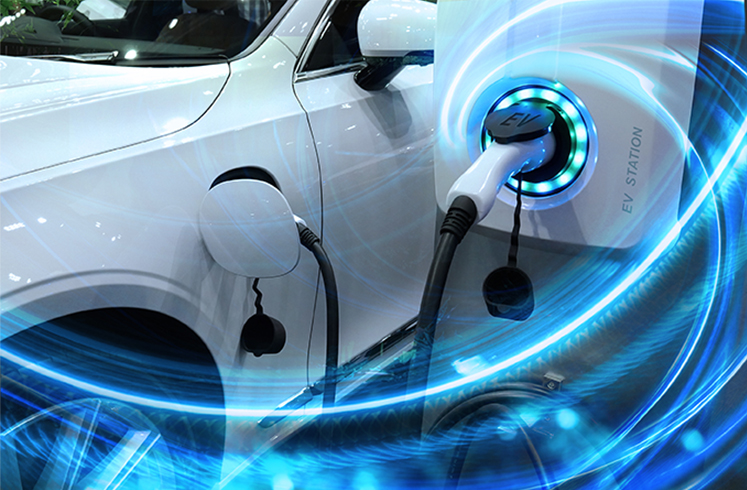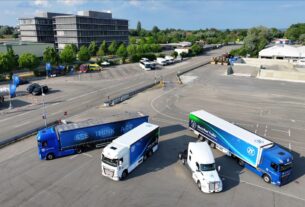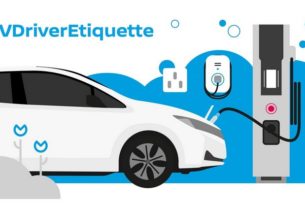Though Budget 2021 did not have much of direct incentives for EV makers and e-mobility, key EV players have acknowledged policies such as voluntary scrappage policy, PLI scheme and focus on renewable energy, among other measures announced by the Finance Minister. We bring you budget reactions from some of the most popular faces from the domestic EV arena.

Mr. Tarun Mehta, Co-Founder & CEO, Ather Energy
“The voluntary vehicle scrappage policy announced to phase out old and unfit vehicles will encourage the sales of new vehicles. It is good to see that the government is looking at addressing the concerns regarding GST inverted duty structure. We look forward to more details on the inverted duty structure and the Production-linked incentive (PLI) scheme announced by the Finance Minister.”
Mr. Anurag Garg, MD & Country Head, Vitesco Technologies, India

“The Union Budget 2021 was the most anticipated budget for the Indian automotive and manufacturing sector. There was a strong push towards manufacturing and localization in this budget. Apart from the usual focus on fiscal deficit, this time the government has shown a great focus on health and infrastructure development this time.
The announcement of a voluntary Scrappage policy is a move in the right direction. We look forward to further details on this to understand how this can encourage the adoption of electric vehicles, gradual reduction of air pollution in coming years, and newer Bharat Stage Norms in the future. Now, we look forward to the proper implementation of this policy at a larger stage as soon as possible will help us to enhance demand in the market.
The finalization of the Production-Linked Incentive (PLI) Scheme and the allotments are also positive. The PLI Scheme will get a better push to boost manufacturing and attract investments in the automotive sector, benefitting us in the long run.
Additionally, the focus on renewable energy is welcome. The Hydrogen Energy Mission and focus on solar energy will help meet our energy requirements in the future adequately. Health outlay in the budget has increased by almost 100% considering the pandemic situation, this will help us to uplift the health infrastructure in both urban and rural segments of our country.”

Mr. Inderveer Singh, Founder & CEO, EVage
“As a four-wheeler commercial EV manufacturer, we at EVage welcome the steps the government has taken with the new scrappage policy as it will help accelerate the EV adoption in India, the boost to road infrastructure which will in turn enhance consumption pattern and increase disposable income. And lastly, the increase in custom duty to 15% will facilitate indigenising auto components manufacturing, enhance job creation and tech capabilities in India. Along with these positive measures, we were hoping that the government would also induct the EV sector as a priority lending sector.”
Mr. Saurav Kumar, Founder and CEO, Euler Motors

“This year’s budget is a directional push to move towards clean energy and transition towards a green economy. The outlays to tackle air pollution and boost to non-conventional energy sectors will be key to reduce dependence on fossil fuels and power the industrial sector and electric transportation. The announcement of the Hydrogen Energy Mission is a step closer for generating power through green sources and fulfil charging requirements of EVs in the future.
It is also heartening to the continued support to MSMEs and start-ups with measures to ensure ease of doing business, including a seed fund to support early-stage start-ups and an investment clearance and advisory cell to widen their scope and growth. We are now excited to witness how the industry makes the most of these initiatives for entrepreneurship and drive innovation to further the Start-up India Vision.”

Mr. Harsh Didwania, Co-Founder & Director, EeVe India
“The budget is a very forward-looking one – the focus on infrastructure & spending will boost the job market and build confidence in the industry It’s a step towards a robust economic reform agenda, the budget did not talk much on the automobile sector specifically on EV, Raising on custom duty will result in an increase in the cost of EV, Overall 2020 has ended up disappointing the EV sector.”
Mr. Suhas Rajkumar, Founder, Simple Energy
“The auto and EV industry welcome the Union Budget 2021. The voluntary vehicle scrapping policy for CV and PV is a great move by the Government. It will push the mindset of people to adapt to cleaner commute and open the market for brand new vehicle infusions which can be EV and help the manufacturing industry to grow. It will also help in promoting fuel-efficient vehicles and reduce overall pollution in cities. Some good initiatives include a reduction in customs duties on certain auto parts, and not to forget the extension of tax holiday for startups for one more year. Assurance to smoothen the GST with removal anomalies like the inverted duty structure will certainly support a lot of businesses.”

Mr. Rushi Shenghani, CEO & Founder, Earth Energy EV
“We wholeheartedly welcome the progressive budget by the government this year. The focus on the Atma Nirbhar package will lead to sustained recovery for indigenous brands. We are pleased to know that after keeping Scrappage policy unclear for so long, our Govt is placing voluntary scrapping policy ahead this year- the industry is going to get a major boost and create demand for energy efficient vehicles. With the continued Govt support Indian OEMs and manufacturers will grow India self-reliant towards green mobility.”
Mr. Nishchal Chaudhary, Co-Founder & CEO, BattRE
“We welcome the budget presented today by the FM. Though there are no direct incentives introduced for the EV industry, but the proposed steep increase in capital expenditure will push the growth and induce a higher consumption, which will definitely boost automobile and EV sales.
From EV industry’s point of view one expectation that remains unanswered, in the budget, is the reduction on GST on lithium batteries and other raw materials to 5%. The current GST structure leads to a huge working capital blockage, thus hindering growth.”
Ms. Bunisha Khajamohideen, Co-Founder, Terabite Ekarts
“It’s good to know that our government supports the auto sector with its scrapping policy, which in turn helps people move towards green vehicles. Also, the announcement on tax incentives for start-ups is absolutely welcoming. Auto/EV startups that cater to masses like street vendors will provide more relief to the society at large, thus making them self-reliant, also contribute to Atmanirbhar Bharat initiative.”

Mr. Ankit Kumar, CEO, Gozero Mobility
“The new Budget announced by the FM Nirmala Sitharaman, has shown that the Govt. of India is looking to make great strides in promoting its indigenous EV industry. First is the Voluntary Vehicle Scrapping Policy, with the intention to phase-out vehicles that are poor in fuel efficiency off the roads. This policy would incentivise owners of old vehicles, which are usually the ones that fit the bill, to voluntarily give up their vehicle for scrap and look towards newer vehicles and more innovative mobility solutions. This policy would definitely push the EV industry more into the limelight as the public now has more reason to evaluate the economic feasibility of EVs and e-micro mobility options like e-bikes.
Secondly, Rs. 2217 crores have been allocated to tackle the plaguing issue of air pollution, targeting 42 cities that have a population of more than a million. This mission would definitely entail the promotion of sustainable transportation, as vehicular emissions constitute a major share in our cities’ air pollution. Also coupled with the Vehicle Scrapping Policy, the auto industry can be optimistic about seeing the rise of charging infrastructure, and bicyclists and e-bikers could see their dreams of bicycle friendly streets being fulfilled. Thirdly, the National Hydrogen Mission with the proposal to draw energy from renewable sources ensures that the entire value chain in energy consumption, including for electric vehicles, would be as carbon neutral as possible.”





